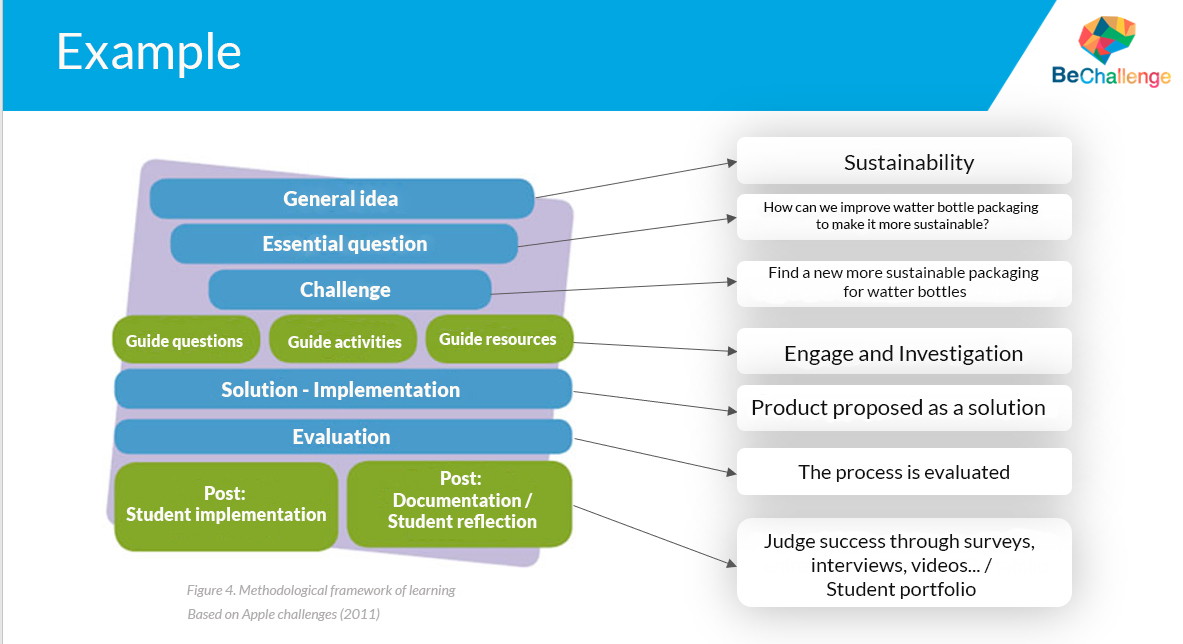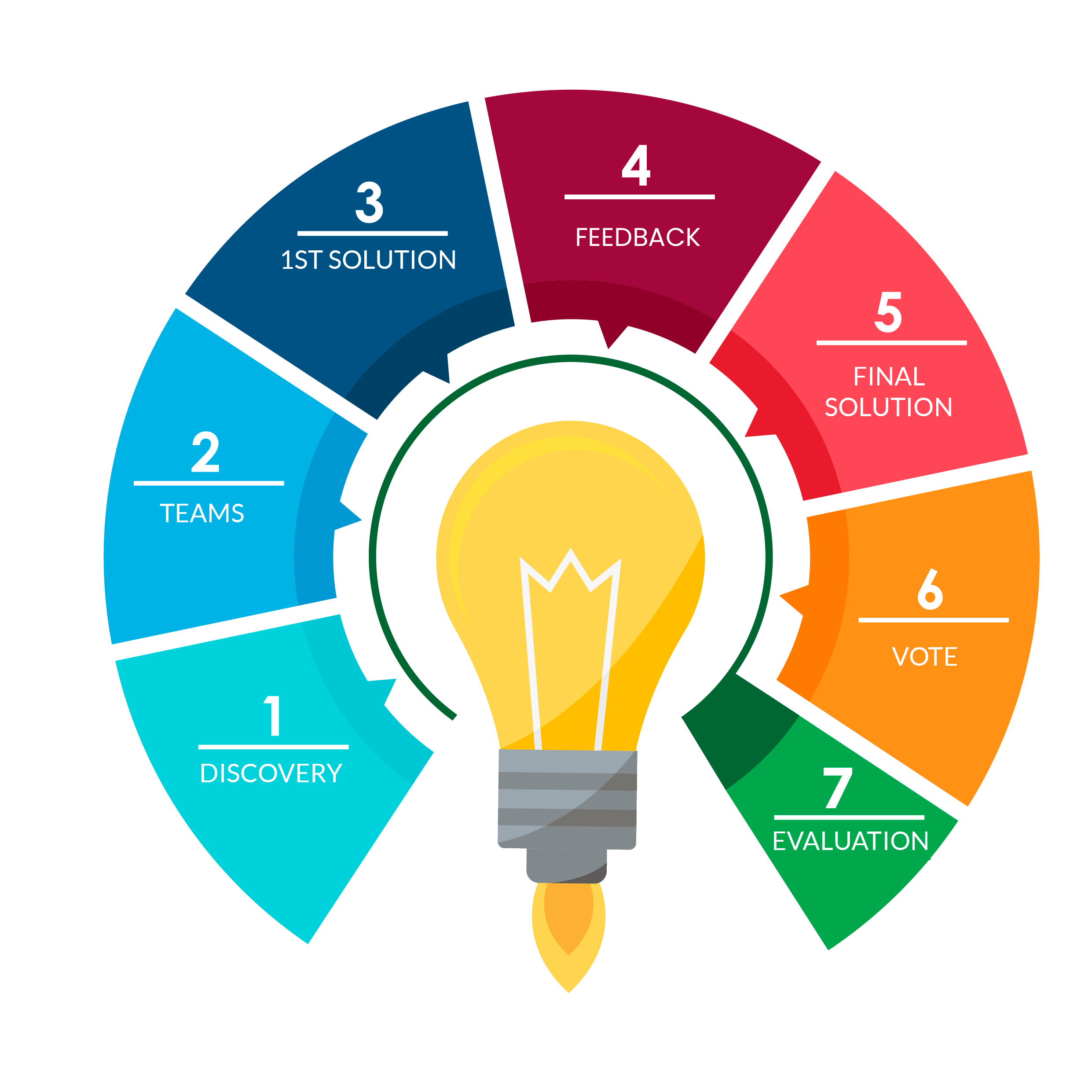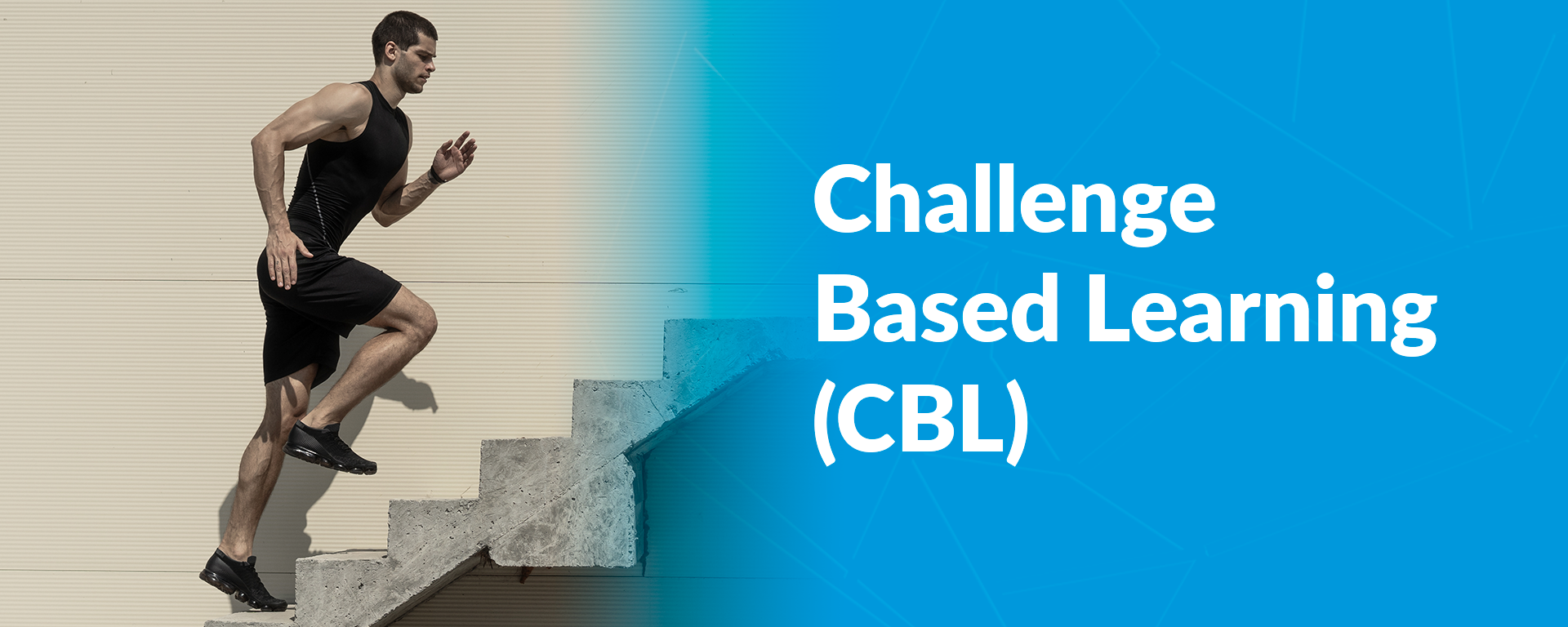
“Dime y lo olvido, enséñame y lo recuerdo, involúcrame y lo aprendo”
(Benjamin Franklin)
Before defining this pedagogical approach known as Challenge Based Learning (CBL), we must know what a challengeis. Quintero (2015) states that we can understand it as an activity, task or situation that involves the student and produces a stimulus and a response.
The CBL was reinvented in 2010 by Apple Inc, in collaboration with the education community. Its intention was to reverse the general situation in the educational field (activities focused on content, disconnection with the real world, lack of motivation...). Apple (2010) as developers of this new multidisciplinary approach, defined CBL as a standards-based approach that enables young people to use the technology they are immersed in to solve real problems. It also focuses on collaboration and the need for students and teachers to work with peers and other experts, creating communities that identify, study, and solve problems in the reality of their community and then share the solutions with other communities.
According to EduTrends, organisational learning unit of the Instituto Tecnológico de Monterrey (2016), specifically from Observatorio del Tecnológico de Monterrey. "It is a pedagogical approach that actively involves the student in a real problem situation, relevant and linked to the environment, which implies the definition of a challenge and the implementation of a solution".
CBL is therefore an approach that involves the learners in a real problem linked to their context. The investigation of this problem by students involves the definition of a concrete challenge (stimulus) and the design of an appropriate solution (response). It involves the student during the whole process in an active way, requiring researching in both, the subject matter, and the solution to be implemented.
As this is an approach with a "short" track record for the time being, the reference model for implementing this approach is usually the one designed by Apple:
Diagram based on the Apple Methodological Framework, developed by EduTrends (2016).

In terms of the benefits and advantages offered by CBL, we will mention the most remarkable ones:
-
- Harness the students' interest and increase their motivation
- Involves the student during the design, development, implementation, and the evaluation of the process.
- Places the student at the centre of the Teaching-Learning (LT) process.
- It gives practical meaning to the students' L-T process.
- It develops abilities and skills (collaboration, communication, ICT competence, critical thinking, creativity, problem solving, initiative and entrepreneurship, decision making...).
- A deeper understanding of the subject matter and the development of the ability to diagnose and define a problem before proposing a solution.
Many companies and institutions besides Apple inc. use CBL. Singularity University which uses exponential technologies to face the world's greatest challenges, the University of Mondragon, , which links its training with reality and the jobs derived from it, the Instituto Tecnológico de Monterrey which has adopted the practical and experiential learning of this approach, ESADE also includes methodological aspects and Full Sail University or Ball State University which use immersive and collaborative teaching methods.
On BeChallenge methodologywe base our methodology on three elements; Design Thinking, ChallengeBL and Connectivism. These elements made us a platform where we offer authentic and real learning, where students take the lead in their learning and are aware of its impact. All this under Connectivism (link blog article), the most current learning theory developed by Siemens (2004), who stated that it was a learning "...focused on connecting sets of specialised information and the connections that allow us to learn..." and that promotes the development of competences and skills.

To know the Method that we provide in BeChallenge follow this link
We are aware of the skills and competences that will be necessary in the 21st century and we take into account the exponential growth of Artificial Intelligence, these skills are known as Soft Skills and we promote the most relevant ones for the 21st century (according to World Economic Forum study ) such as creativity, collaboration, communication, problem solving and critical thinking.
We believe in practical and active education, focusing on solving challenges by empowering students and involving them in the L-T process. Aimed at producing viable solutions to problems linked to a community, and then sharing it with others.
BeChallenge methodology can be the ideal complement to motivate your students, empathize with them and solve problems or challenges related to your context and the 17 Sustainable Development Goals of the United Nations

Do you accept the challenge? Join BeChallenge! Join the learning and training revolution.

BIBLIOGRAFÍA
Apple. (2010) Challenge Based Learning. A classroom guide. 13 de marzo de 2018, de Apple Inc Sitio web.
Garza, E. (2016). Aprendizaje Basado en Retos. 23 de febrero de 2018, de EduTrends Sitio web.
Garza,E. (2016) Marco metodológico del Aprendizaje Basado en Retos de Apple.
Quintero, E. (2015) Aprendizaje Basado en Retos Parte 1 – Definición [Vídeo] .
Santiago, R. (2014). 8 cosas que deberías saber sobre Aprendizaje Basado en Retos. Pamplona: The flipped Classroom.
Altmann, G. (2015). Marketing school business idea
Adaptación del artículo generado originalmente por Miguel Ángel Rodríguez – Diseñador Tecnopedagógico en BeChallenge


